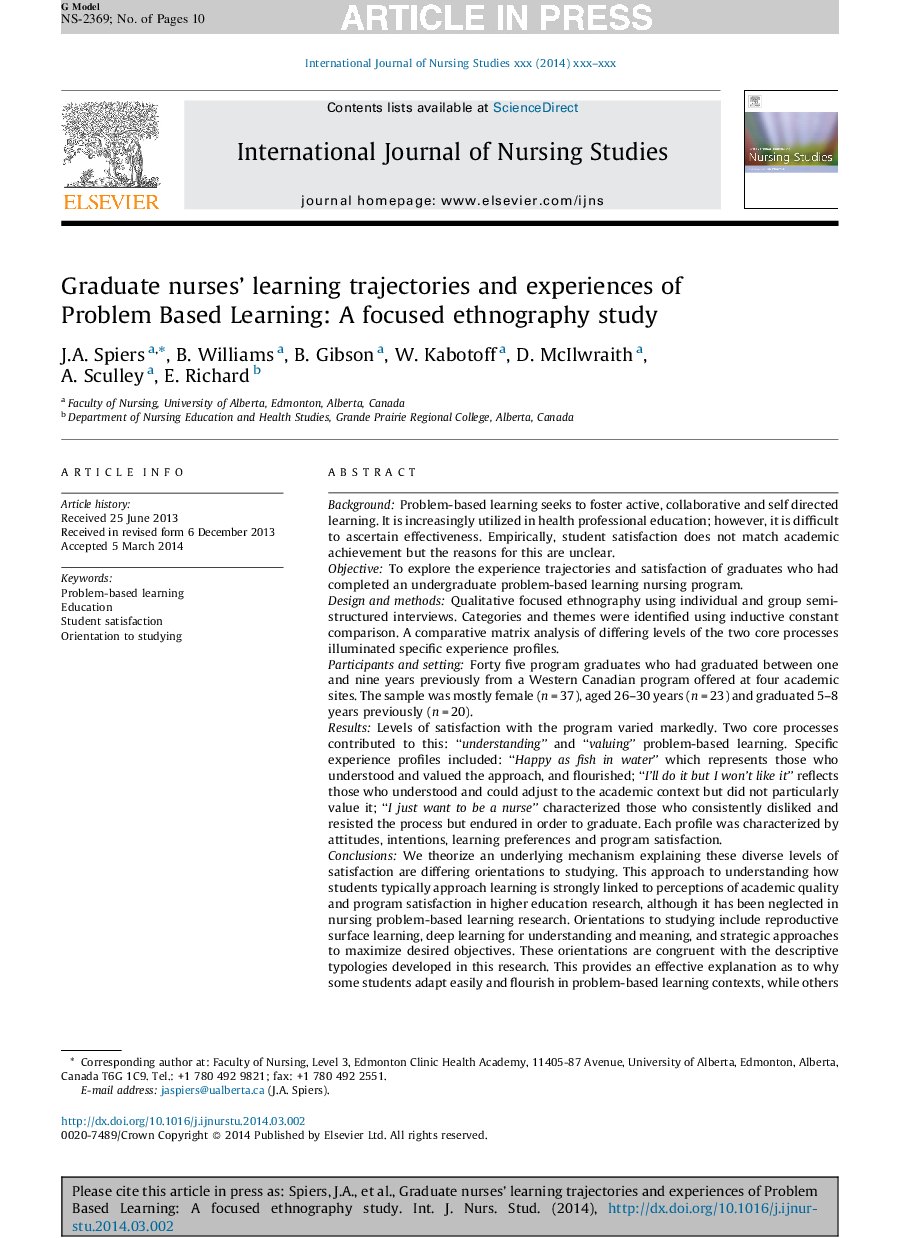| Article ID | Journal | Published Year | Pages | File Type |
|---|---|---|---|---|
| 7515917 | International Journal of Nursing Studies | 2014 | 10 Pages |
Abstract
We theorize an underlying mechanism explaining these diverse levels of satisfaction are differing orientations to studying. This approach to understanding how students typically approach learning is strongly linked to perceptions of academic quality and program satisfaction in higher education research, although it has been neglected in nursing problem-based learning research. Orientations to studying include reproductive surface learning, deep learning for understanding and meaning, and strategic approaches to maximize desired objectives. These orientations are congruent with the descriptive typologies developed in this research. This provides an effective explanation as to why some students adapt easily and flourish in problem-based learning contexts, while others continually struggle to adapt. Further research is needed to determine the relationship between deep, surface, and strategic orientations to study and student satisfaction in nursing programs.
Related Topics
Health Sciences
Medicine and Dentistry
Public Health and Health Policy
Authors
J.A. Spiers, B. Williams, B. Gibson, W. Kabotoff, D. McIlwraith, A. Sculley, E. Richard,
